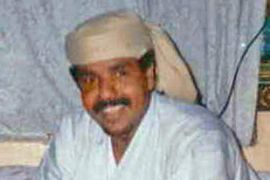Jury mulls bin Laden driver verdict
Guantanamo detainee could face life in prison if found guilty of supporting “terrorism”.

“He knew all of the key players surrounding and protecting al-Qaeda,” John Murphy, the prosecutor, said.
“He knew that terror was going to occur before it happened.”
However, Hamdan’s Pentagon-appointed lawyer, Navy Lieutenant Commander Brian Mizer, said in closing arguments his client never joined the al-Qaeda network and had nothing to do with the September 11, 2001 attacks in the US.
“If every garage mechanic and driver knew the details and was involved in the planning of the attack, it never would have happened,” Mizer said.
‘Abuse’ claims
Hamdan, who is about 40-years-old, faces a possible sentence of life in prison if found guilty.
The Yemeni was captured at a roadblock in southern Afghanistan in November 2001, allegedly with two surface-to-air missiles in his car.
He says he drove for bin Laden in Afghanistan because he needed the $200 in monthly wages but denies joining al-Qaeda, pledging loyalty to bin Laden or participating in attacks.
Hamdan has already spent six years in prison at the Guantanamo prison camp, and his defence lawyers say he was subjected to abuse while in US custody, including humiliating interrogation tactics and sleep deprivation.
‘Not fit’ for attacks
Several witnesses, including Khalid Sheikh Mohammed, the alleged senior planner of the September 11, 2001, attacks, said Hamdan had no knowledge of attacks by al-Qaeda, including the September 11 attacks.
“He was not fit to plan or execute,” Mohammed, who is also due to be tried by the tribunals, said in written testimony.
“Hamdan had no previous knowledge of the operation, or any other one,” he wrote.
“He is fit to change trucks’ tyres, change oil filters, wash and clean cars.”
Five men, including Mohammed, were charged in July with crimes relating to the September 11 attacks.
The Bush administration has faced heated criticism over the Guantanamo Bay prison camp and the special tribunals, which operate under different rules to other civilian or military courts.
Only a small group of authorised observers and journalists are allowed into the small courtroom and military authorities prohibit the proceedings to be recorded by television news networks.